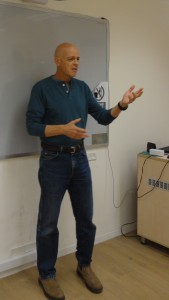“The Legacy of Religious Violence in Judaism”
Lecture by Gideon Aran at The Graduate Institute, Geneva
Tuesday 29 April 2014, 18:30 – 20:00
The lecture discusses the Jewish case of religious violence. This by no means implies that Judaism is more (or less) violent than any other religion. In fact, we witness an impressive legacy of non-, or, anti-violence in Judaism.

However, I will rather focus on the dialectical relationship between religious tradition and violence in Jewish history and mythology, and in the contemporary Jewish world, particularly in the Jewish State. My argument regarding Jewish violence implies a general theoretical model of religious violence that can be applied in a comparative context.
This lecture offers a partial survey of the components of Jewish tradition relating to violence while analyzing and illustrating their development and influence along three Millennia from biblical times, through the middle ages and modernity to these very days.
I’ll analyze the various transformations that these violent motifs have undergone, their linkage to ever-changing social and cultural circumstances, their social-political roots and implications, and their relationship to other Jewish traditions.
I’ll trace how ancient motifs have emerged and been processed over time, and observe present day violent behavior in the light of ancient motifs. Along the way, I will explicate the dynamics that characterizes the Jewish violence tradition and its paradoxical natureby clicking here


